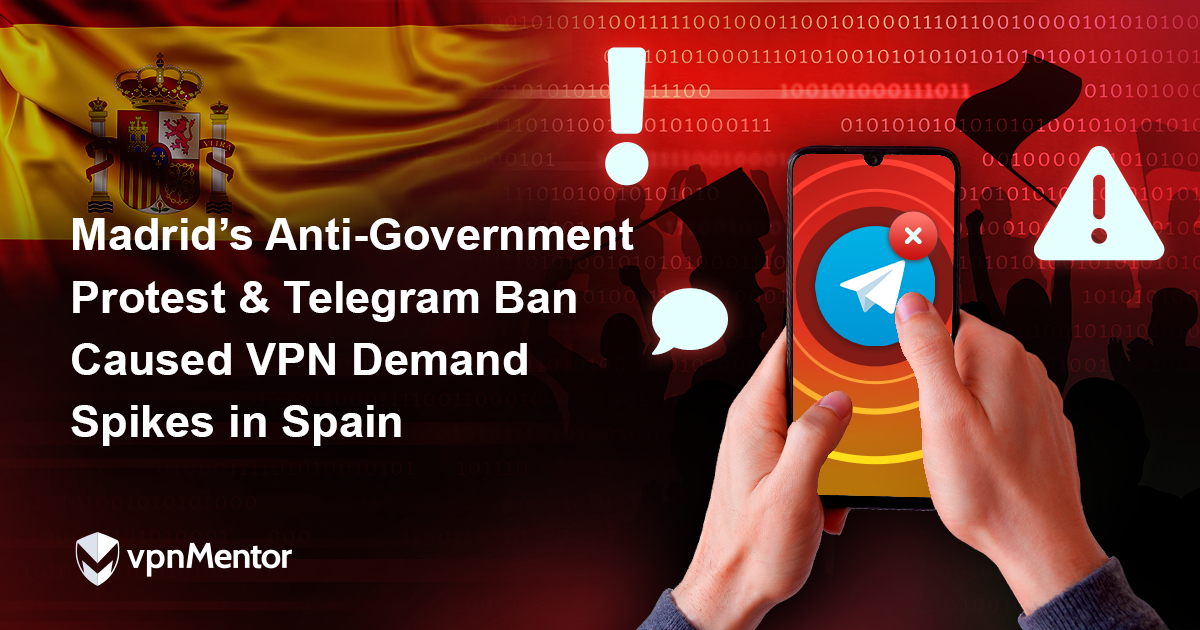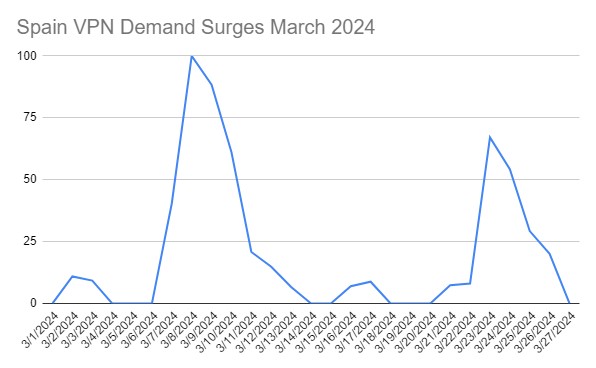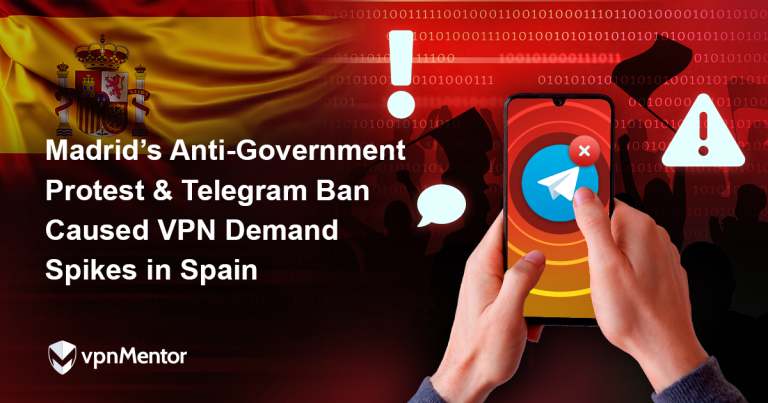Madrid’s Anti-Government Protest & Telegram Ban Caused VPN Demand Spikes in Spain

VPN demand in Spain surged twice in three weeks — rising by 330% on March 8, one day before an opposition protest in Madrid, and by 150% on March 23, after a court ruling temporarily banned Telegram in the country.
The graph below shows the VPN demand in Spain from March 1 to March 27.

VPN Demand Surge Pre-Catalan Amnesty Law Protest
The vpnMentor research team found a 330% increase in VPN demand in Spain on March 8, 2024. Our team assumes this could be attributed to a demonstration that was planned and carried out on March 9, protesting a government bill aiming to grant full amnesty to parties involved in the failed Catalan secession in 2017.
Since the separation attempt, certain sectors of Spanish society have pushed for the prosecution of those responsible for the event. The amnesty bill for Catalan separatists is backed by Spain’s Prime Minister Pedro Sanchez, hailing it as a means to ease the political turmoil caused by the secession bid.
The VPN demand spike observed a day before the March 9 protest potentially occurred as opposition activists were preparing for the demonstration. Most likely, it was in an effort to enhance privacy, protect anonymity, and secure communications.
VPN Demand Surge Post-Telegram Ban
On March 23, 2024, vpnMentor’s research team noted another upswing in VPN demand in Spain, this time related to an order to block Telegram access in the country. The 150% increase in VPN demand was observed a day after the ruling.
The ban was enforced by the judge of the National Court on March 22, 2024, after several media companies reported Telegram’s alleged copyright infringement of audiovisual content.
The platform supposedly declined to provide the court’s requested information in response to the allegations, which prompted the decision to temporarily suspend its operation in the country pending investigation. Reports of Spain-based users failing to access Telegram came later that day.
On March 25, three days after the ruling, the judge of the National Court rescinded his earlier decision, citing it to be “excessive.” He also noted that its effects on Telegram users across the country cannot be ignored, given that the platform claims to offer better privacy settings.
As of March 2024, there are approximately eight million Telegram users in Spain. Therefore, the surge in VPN demand on March 23 could be attributed to individuals’ efforts to circumvent the ruling and retain regular access to the communications app.
Past VPN Demand Growths
The vpnMentor research team has recorded several similar VPN demand spikes related to protests, social media suspensions, and restricted access to certain apps or websites.
In September 2023, VPN demand in Azerbaijan skyrocketed by 324% after the government enforced a temporary TikTok ban. The restriction was supposedly meant to prevent disinformation following military offensives against the disputed Nagorno-Karabakh region.
vpnMentor neither encourages nor condones using VPNs for illegal activities, such as bypassing laws or regulations.

